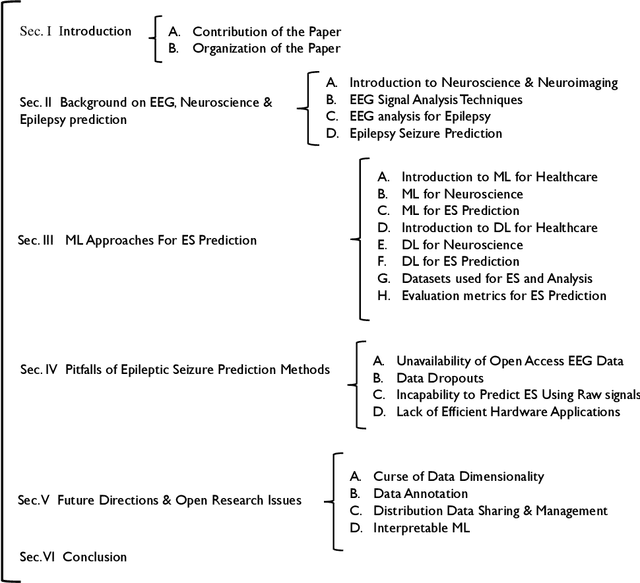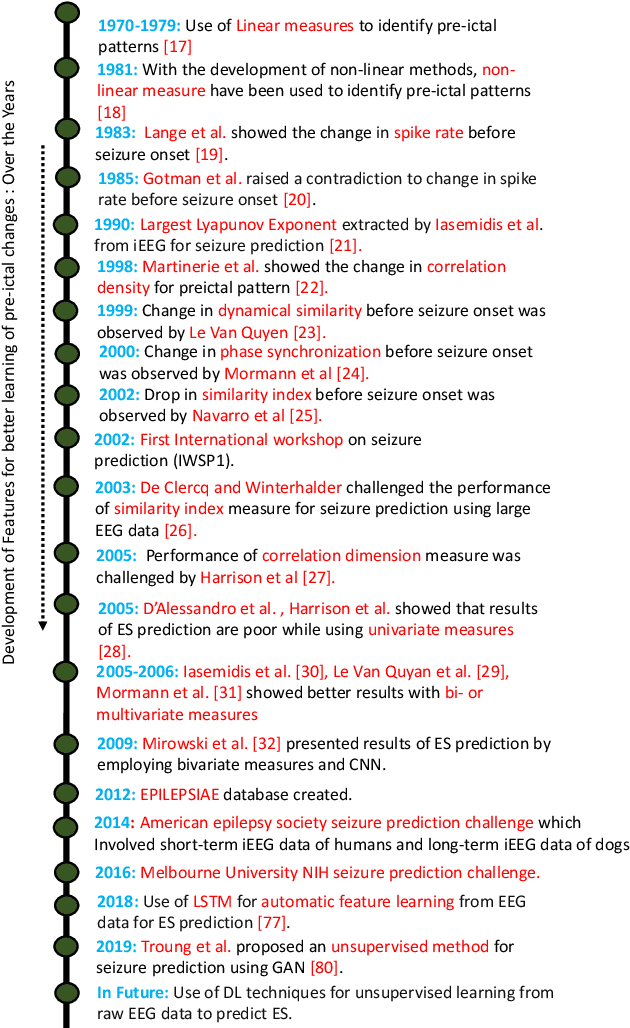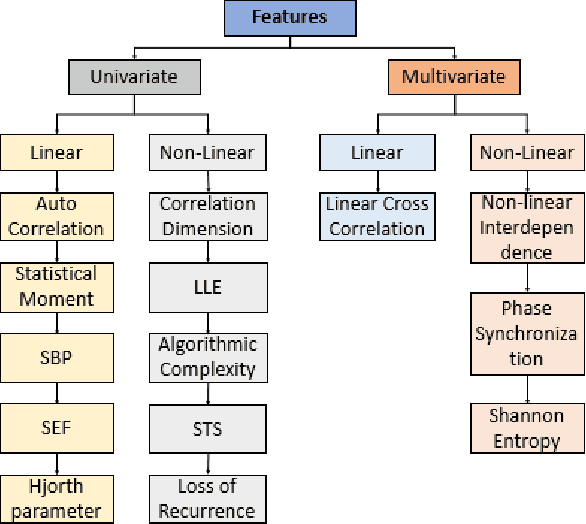Machine Learning for Predicting Epileptic Seizures Using EEG Signals: A Review
Paper and Code
Feb 04, 2020



With the advancement in artificial intelligence (AI) and machine learning (ML) techniques, researchers are striving towards employing these techniques for advancing clinical practice. One of the key objectives in healthcare is the early detection and prediction of disease to timely provide preventive interventions. This is especially the case for epilepsy, which is characterized by recurrent and unpredictable seizures. Patients can be relieved from the adverse consequences of epileptic seizures if it could somehow be predicted in advance. Despite decades of research, seizure prediction remains an unsolved problem. This is likely to remain at least partly because of the inadequate amount of data to resolve the problem. There have been exciting new developments in ML-based algorithms that have the potential to deliver a paradigm shift in the early and accurate prediction of epileptic seizures. Here we provide a comprehensive review of state-of-the-art ML techniques in early prediction of seizures using EEG signals. We will identify the gaps, challenges, and pitfalls in the current research and recommend future directions.
 Add to Chrome
Add to Chrome Add to Firefox
Add to Firefox Add to Edge
Add to Edge